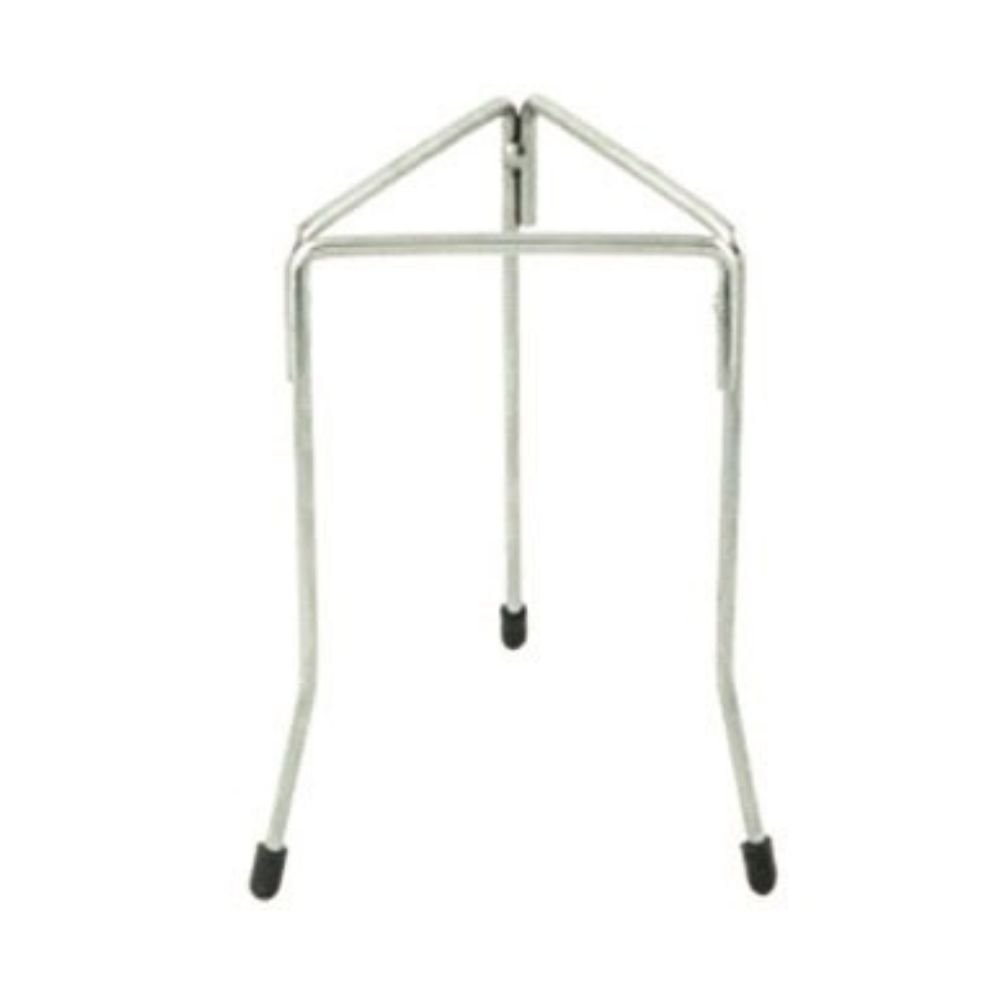Tongs are essential tools in the laboratory, used to handle hot, hazardous, or delicate items with precision and safety. Made from materials such as stainless steel or heat-resistant polymers, they come in various designs—be it for gripping glassware, transferring samples, or manipulating chemicals. Their ergonomic design and reliable grip make them indispensable for maintaining both efficiency and safety in scientific work.
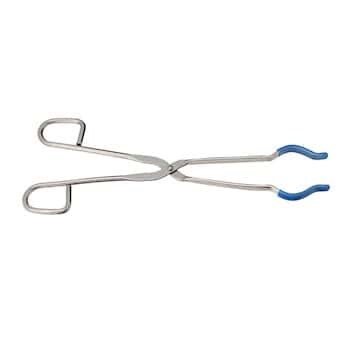
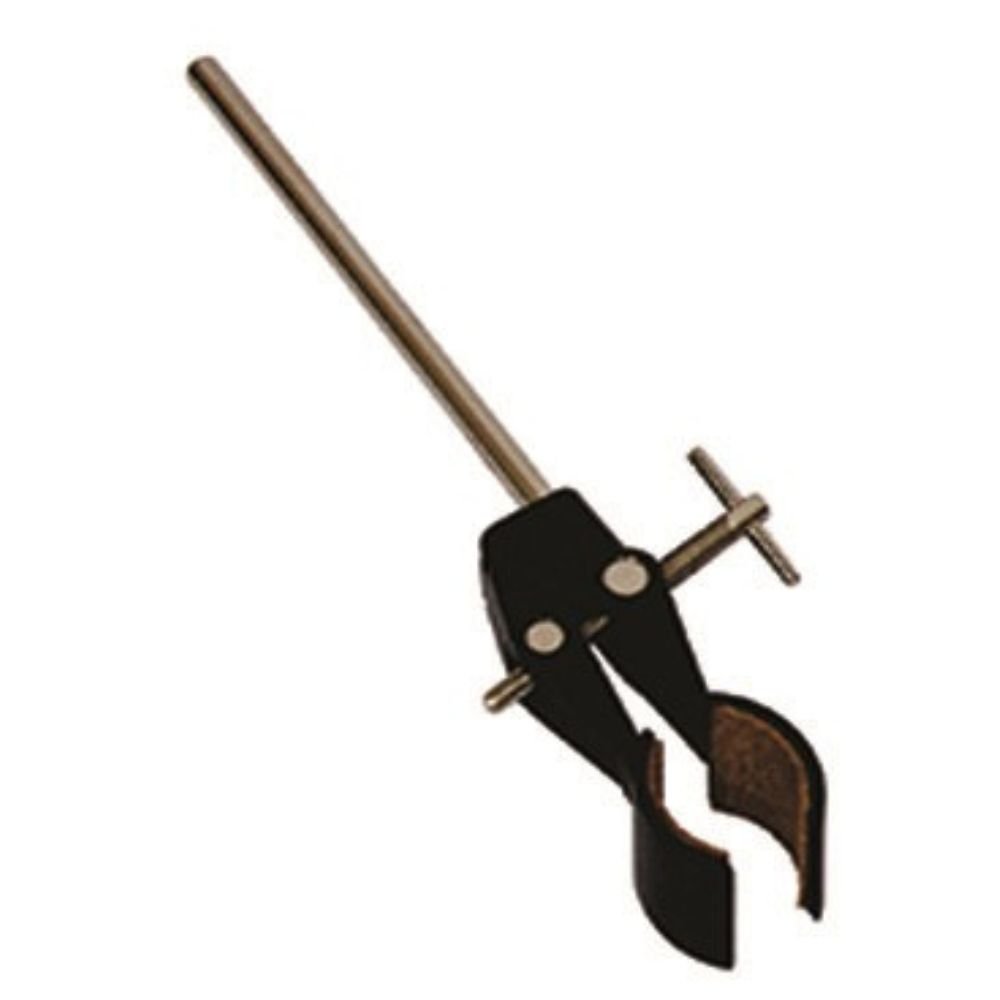
Clamps are versatile laboratory accessories designed to securely hold and stabilize equipment or materials during experiments. Commonly used to support glassware, such as flasks and beakers, or to attach apparatus to stands and rods, they come in various types—including burette clamps, ring clamps, and utility clamps. Made from durable materials like metal or plastic, clamps ensure that components remain fixed in place, allowing for precise and safe handling of experimental setups.
A test tube holder is a practical laboratory accessory used to securely grip and handle test tubes during experiments. Typically made from metal or heat-resistant plastic, it features a clamp-like design that allows for easy adjustment to accommodate different sizes of test tubes. The holder is essential for safely transferring test tubes, especially when they contain hot or hazardous substances, and helps prevent spills and accidents by providing a secure grip.
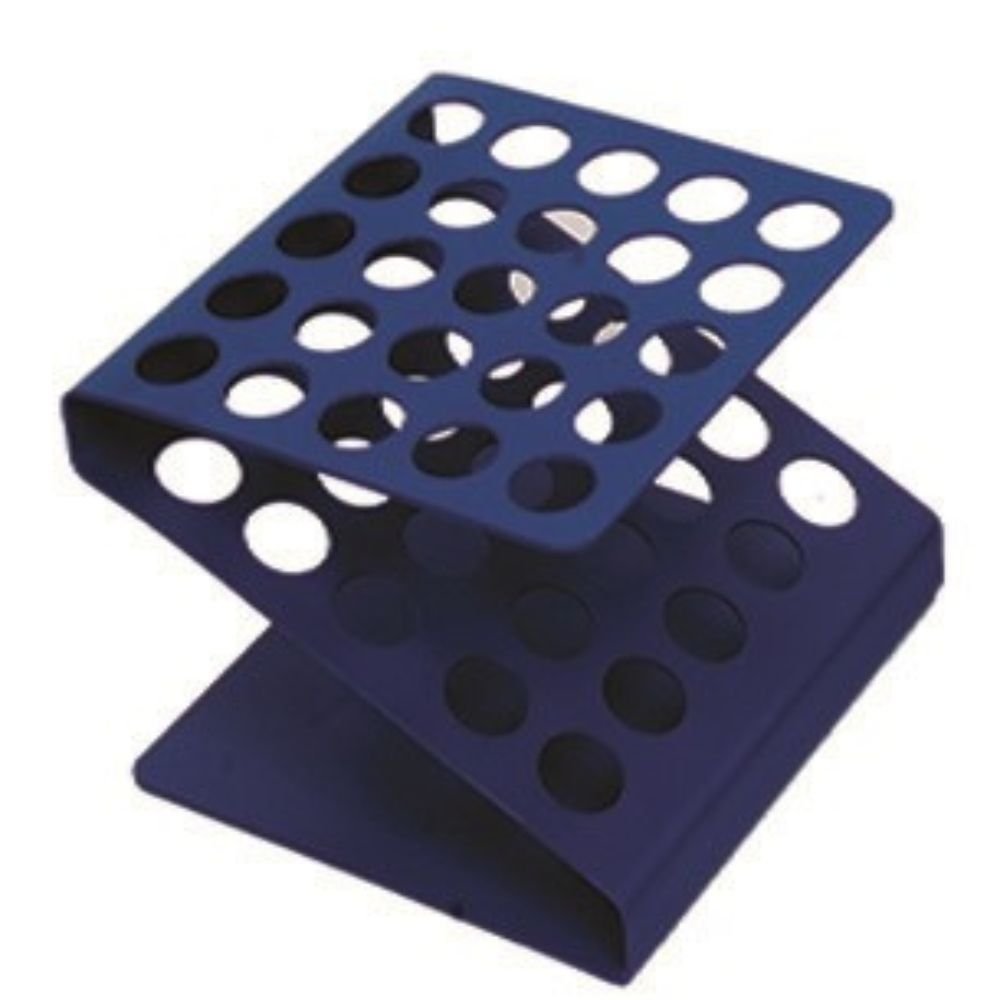
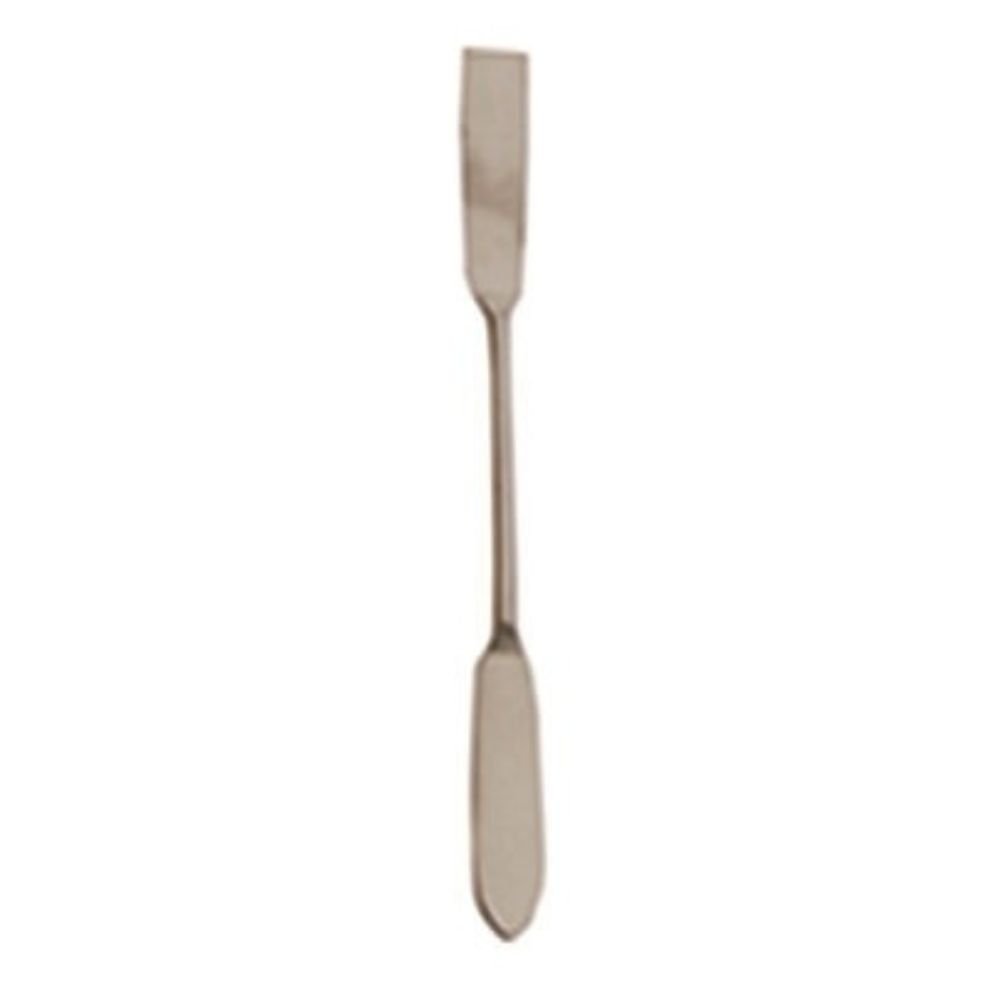
A spatula is a versatile laboratory tool designed for transferring, mixing, and handling small amounts of powders, solids, or semi-solids. Typically made from materials such as stainless steel, plastic, or ceramic, laboratory spatulas come in various shapes and sizes to suit different tasks. The flat, often curved blade allows for precise manipulation of substances, making it an essential instrument for tasks like measuring chemicals, scraping residues, and mixing compounds.
A bosshead is a versatile laboratory clamp designed to hold various types of apparatus securely on a support stand. It typically features an adjustable mechanism that allows it to fit onto different-sized rods and can be equipped with various attachments, such as clamps or rings, to hold equipment like test tubes, flasks, or burettes. Made from durable materials like metal or plastic, the bosshead ensures stability and precise positioning of laboratory equipment during experiments.
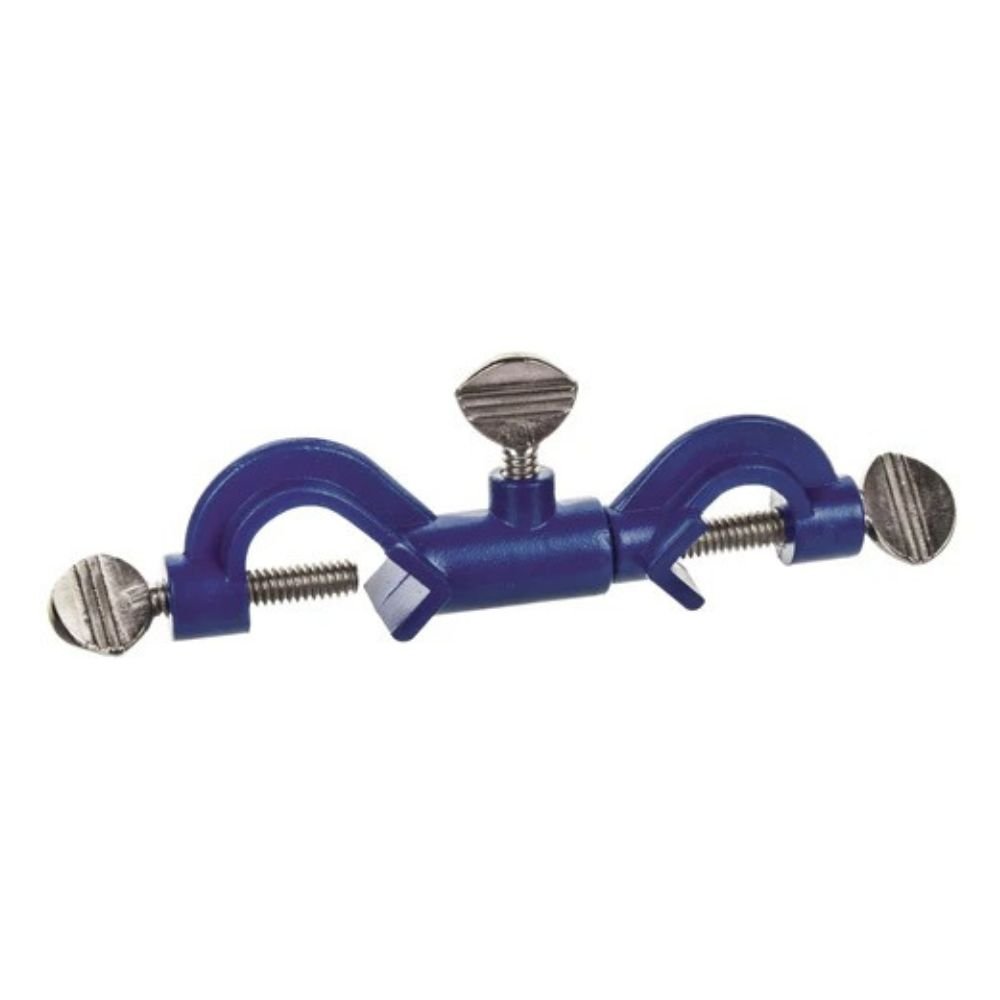
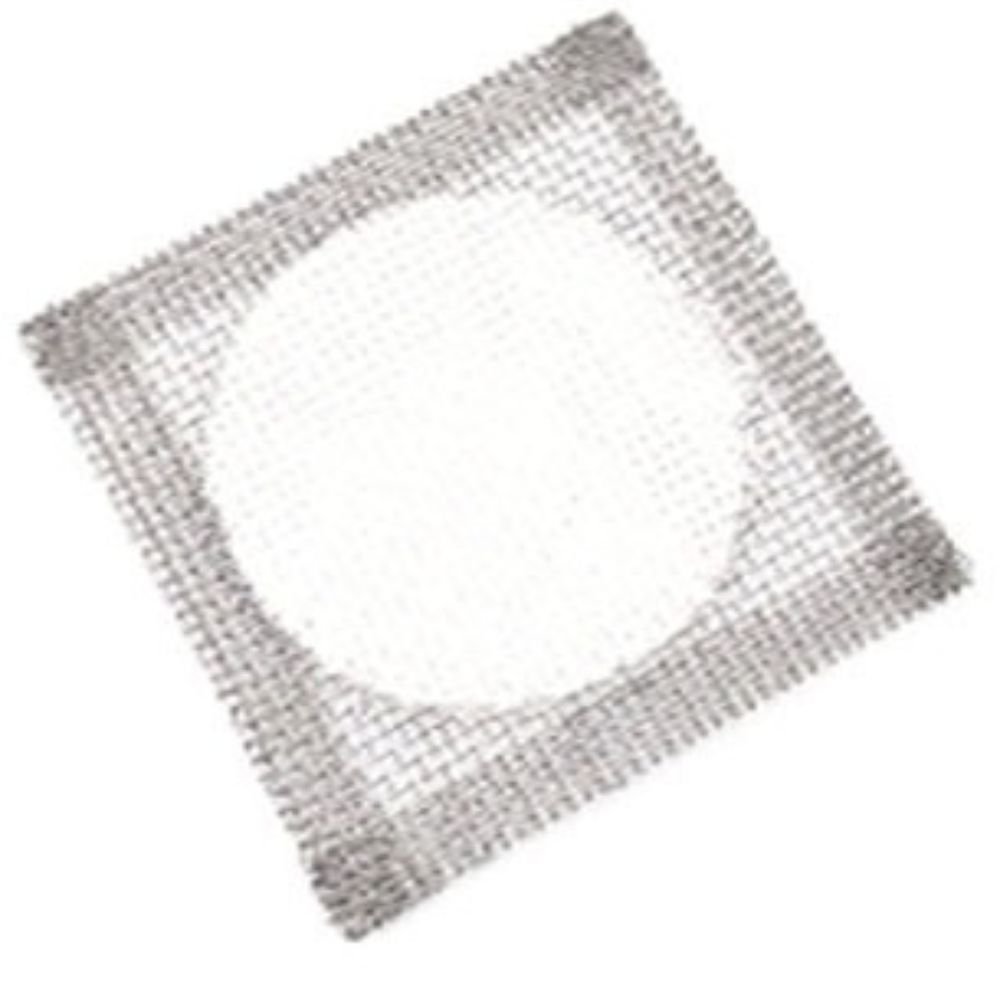
A wire gauge, also known as a wire thickness gauge, is a tool used to measure the diameter or thickness of wires or thin materials. In the laboratory, it is crucial for ensuring the correct dimensions of wire samples used in experiments or setups. The gauge typically consists of a set of holes or slots with standardized sizes, allowing users to determine the wire's thickness by comparing it to these known dimensions. Accurate measurement is essential for maintaining consistency and precision in experiments that involve electrical circuits or mechanical components.
Forceps are essential laboratory tools designed for grasping, handling, and manipulating small objects or delicate materials with precision. Similar to tweezers, forceps come in various shapes and sizes, with different tip designs to suit specific tasks, such as holding specimens, transferring small quantities of substances, or positioning items under a microscope. Made from materials like stainless steel or plastic, forceps offer control and dexterity, helping to ensure accuracy and safety in laboratory procedures.
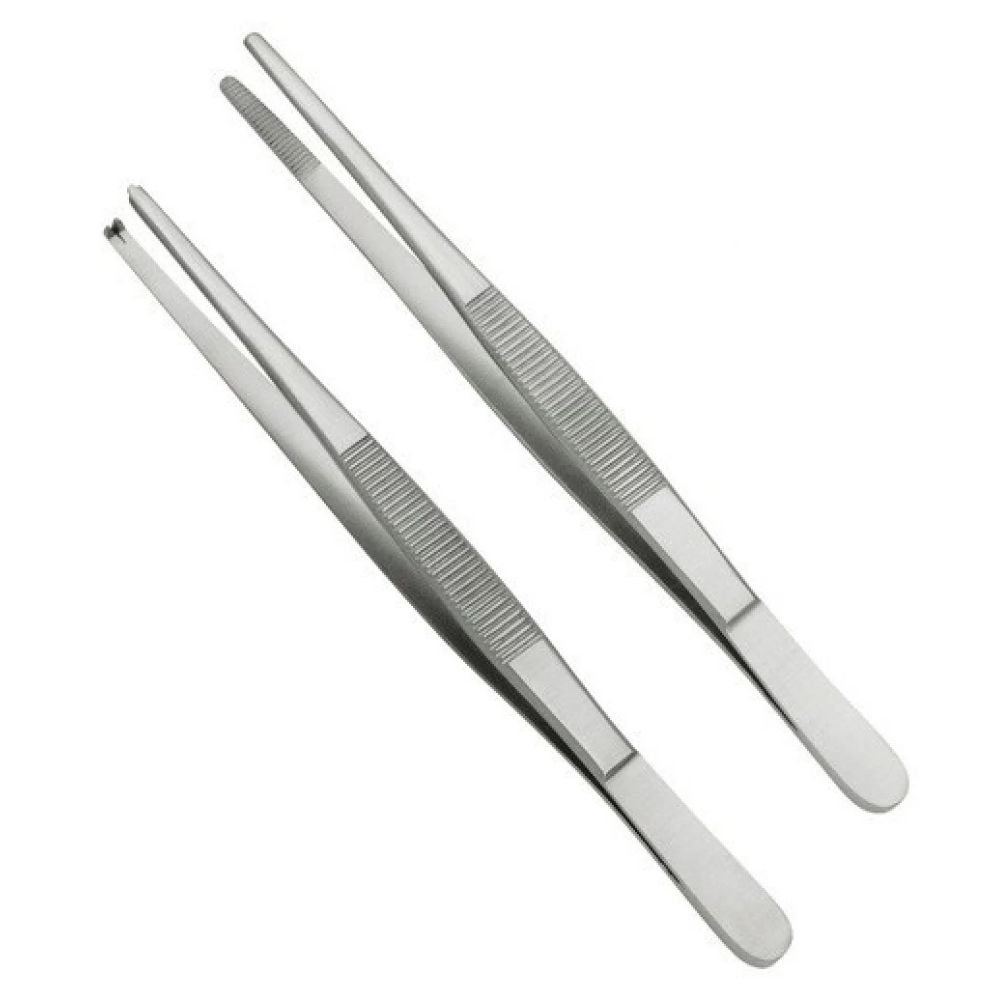
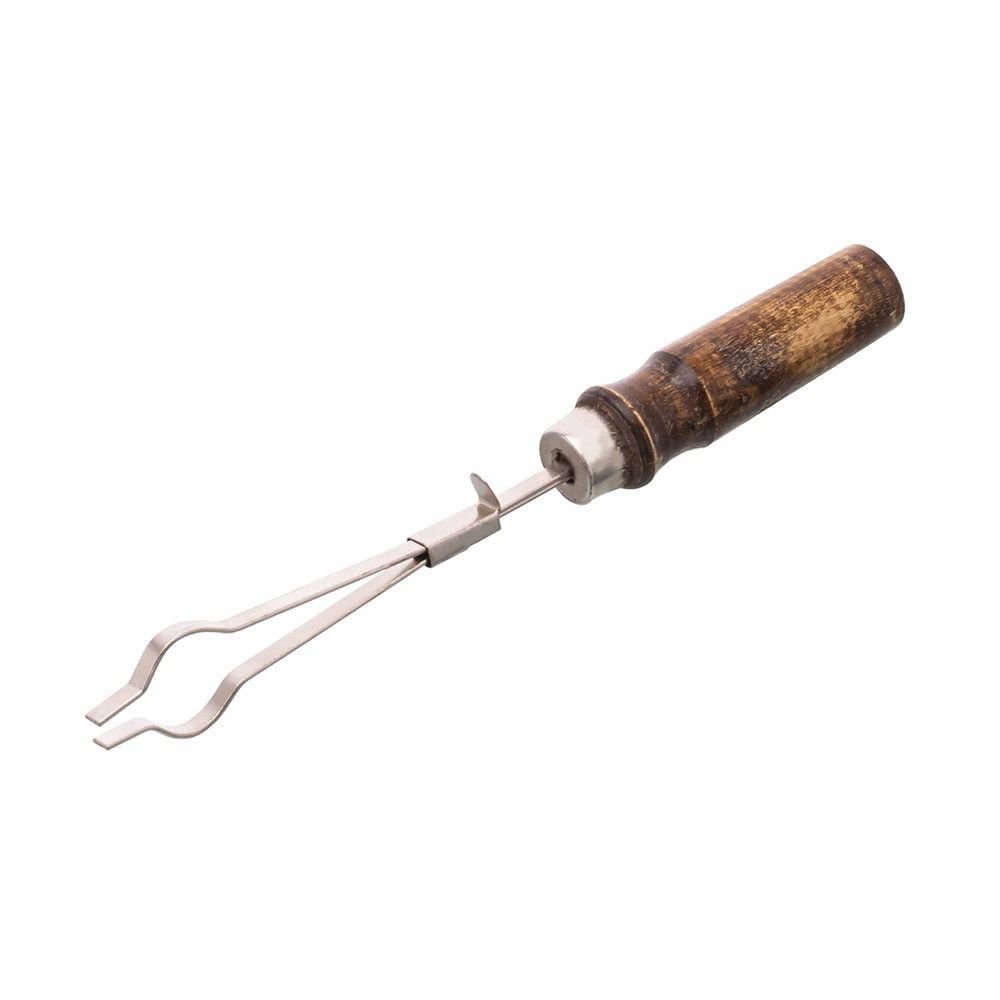
A test tube holder is a practical laboratory accessory designed to securely grip and handle test tubes. Typically constructed from heat-resistant materials like metal or durable plastic, it features a clamp-like mechanism that can be adjusted to accommodate various test tube sizes. The holder is essential for safely holding test tubes during heating, mixing, or transferring, preventing spills and reducing the risk of burns or contamination. Its design ensures that test tubes are securely supported, allowing for precise and controlled experimentation.
A triangular pedestal, often used in laboratories, is a supportive base designed to provide stability and balance for various pieces of laboratory equipment. Typically made from sturdy materials like metal or durable plastic, the triangular shape allows for an even distribution of weight and helps to secure apparatus such as flasks, beakers, or other containers. This type of base is particularly useful for holding items securely during experiments, ensuring that they remain upright and stable.
